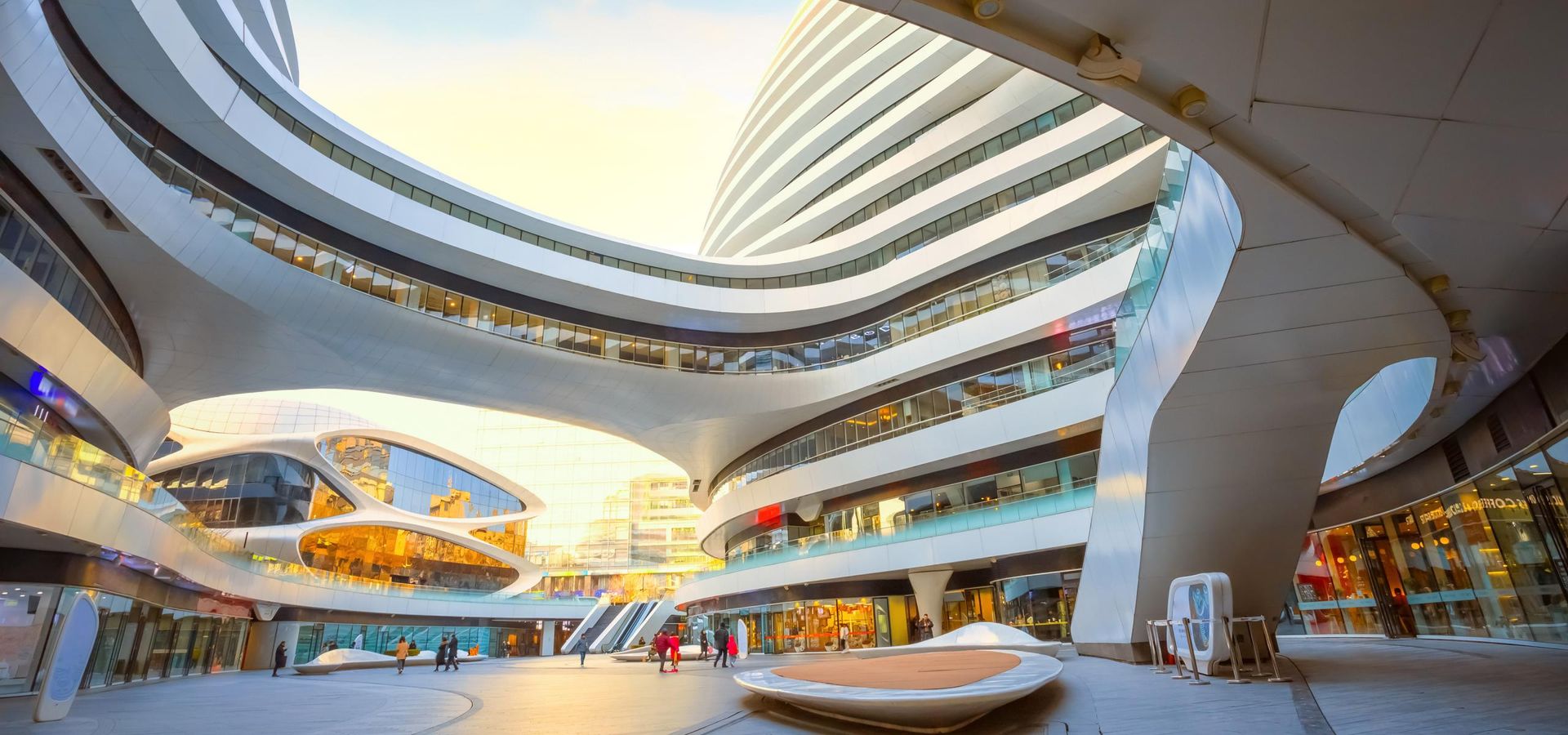
Retail ERP: core features, benefits & integrations
August 15, 2023
- Home
- ERP services
- Retail

Head of ERP Center of Excellence
Retail ERP is enterprise resource planning software that leverages a combination of built-in modules and software integrations to support B2B and B2C retailers in a variety of tasks and business operations. Itransition delivers retail ERP systems to bring together data from across the departments of your online and offline business, provide real-time visibility into your merchandising processes, and help you make smarter, evidence-based decisions.
of the retail companies surveyed achieved their intended customer experience goals after adopting an ERP
Panorama Consulting, 2022
About Itransition
10+ years delivering ERP services
50+ completed ERP projects of different scales across various industries
Hands-on expertise in delivering out-of-the-box, custom, and hybrid ERP solutions
Strategic partnership with Odoo, Microsoft, and NetSuite
ERP for retail: key features
Asset management
Itransition’s team develops ERP software to monitor and utilize your fixed assets, including equipment and real estate properties, in the most productive way while optimizing maintenance costs.
Inventory management
Our team develops solutions to provide retailers with an updated view of real-time inventory levels and order delivery statuses, enable perpetual cycle counting, and improve procurement and replenishment planning accuracy.
Warehouse management
Our solutions can facilitate a smooth exchange of stock input, output, and movement information between your warehouse and front-office systems and apps, and alert managers about sales order status changes.
Supply chain management
By harmonizing logistics and warehousing processes via real-time data synchronization, an ERP solution for retail can help you streamline your supply chain operations and enhance supplier management.
BI & reporting
Our experts can equip your ERP with a module for business intelligence and reporting, allowing you to analyze business data, share it across your organization, and make informed decisions.
Inventory management
Warehouse management
Order management
Customer relationship management
Finance management
Loyalty management
Returns management
BI & reporting
Supply chain management
Asset management
Core ERP features for retail
Order management
To expedite your order-to-cash process, we can build an enterprise resource planning tool that syncs product information, sales and stock availability data in real time and provides order fulfillment visibility.
Customer relationship management
Our custom CRM solutions provide marketing and sales teams with a unified view of customer and supply-side data, assist with customer segmentation and targeting, and enable demand forecasting.
Returns management
Itransition provides your retail company with a solution to facilitate product return and resale, review faulty items, and issue refunds, thereby increasing customer satisfaction and minimizing waste.
Loyalty management
We deliver solutions that capture customer behavior across touchpoints, help you identify returning customers, and create meaningful loyalty programs to reward them.
Finance management
To enable effective management of financial data, we can craft a tool to unite it from across your retail operations into centralized storage and generate accounting reports in a few clicks.
Looking for a trustworthy ERP consultant?
We integrate retail ERP software into your established software infrastructure and facilitate real-time data exchange between the systems, making the ERP solution a single source of truth for your business. We use available APIs and integration tools or develop custom connectors to tie ERP software with the following systems:
To supervise your ecommerce ecosystem and promote your sales channel strategies.
To amplify ERP's built-in analytical features and foster data-driven decision making.
Marketing automation
To automate routine marketing workflows, such as email campaigns and lead qualification.
To fast-track day-to-day HR processes, assess employee performance, and optimize staff allocation.
Key integrations
Brick-and-mortar retail software
To harmonize your order, warehouse, and inventory management operations across multiple retail stores.
To monitor asset conditions and equipment operation in real time via sensors and cameras.
To support personalized customer journeys and identify upselling and cross-selling opportunities.
To speed up transaction processing, gather sales data, and adjust product restocking.
Retail ERP selection checklist

Custom vs out-of-the-box
Custom ERP
Tailored ERP features and modules, but higher upfront costs and longer development times.
Out-of-the-box
Faster deployment, but limited customization capabilities and long-term costs for licenses.
On-premises vs cloud-based
On-premise
Full control over your system and data security, but reduced scalability.
Cloud-based
Faster implementation and superior storage flexibility, but potential licensing concerns.
Horizontal vs vertical
Horizontal
Comprehensive suite for businesses with complex operations, including manufacturing and logistics.
Vertical
Highly specialized ERP for companies requiring a smaller set of advanced, retail-focused features.
Software costs
Variables to consider for budgeting:
- Deployment model
- The range of features and modules
- Customizations
- Adoption urgency
- License fees
- Post-release maintenance and support
- Technical and non-technical resources
Need help with choosing an optimal tech stack for your retail ERP project?
Best ERP platforms for retail
If you opt for a platform-based ERP retail solution, we recommend you pay attention to the following market-leading tools.
Deployment model
- Online SaaS
- PaaS
- On-premises
Target companies
Small, medium, and large enterprises looking for a solution that can scale with them.
Deployment model
- Cloud-hosted
Target companies
From small businesses to large enterprises requiring a flexible, cloud-native ERP solution.
Deployment model
- Cloud
- On-premises
Target companies
Small and medium-sized businesses looking for a flexible ERP solution facilitating their growth.
Microsoft Dynamics 365 Finance & Operations offers comprehensive functionality for retail companies to manage their finance, supply chain, and commerce operations:
- Finance and multi-currency accounting
- Sales and inventory synchronization
- Point of Sales functionality
- Customer loyalty management
- Demand planning
- Logistics control and optimization
- Marketing management and automation
Deployment model
- Cloud
- On-premises
Target companies
Medium-sized and large companies that have complex business processes.
Deployment model
- On-premises
- Private cloud
- SaaS
Target companies
Growing organizations in the retail industry searching for a future-proof, expandable solution.
Retail ERP implementation roadmap
1
Assessment
Business case identification
Analysis of your current ecosystem
Defining technical specifications
2
Design
Feature set definition
UX/UI wireframes
Choosing an optimal technology stack
3
Planning
Project scoping and deliverables and strategy definition
Budgeting and ROI evaluation
Data migration planning
4
Development
Software configuration
Integration setup
End-to-end testing and QA
5
Deployment
ERP deployment to production
Data migration
User training and onboarding
6
Post-launch support
Platform user support
Platform infrastructure support
Technology upgrades
Business benefits of ERP in retail
Increased productivity & profitability
- Process automation and standardization
- Accurate KPI assessment
- Streamlined human resources operations
- Improved staff allocation
Informed decision-making
- Unified data hub and backup
- Business intelligence querying
- Workflow visibility
- Sales trend forecasting
Omnichannel retail
- Mobile commerce features
- Multiple contact centers (email, chat, social media)
- Integration with the ecommerce ecosystem
- Data collection from online storefronts
Regulatory compliance
- Financial reporting automation
- Transparent data governance
- Data protection and cybersecurity
- Advanced accounting features
Enhanced customer experience
- Customer segmentation
- Targeted sales promotions
- Shipment tracking and notifications
- Customer journey visibility
- Self-service features
Build a solid retail ERP solution with Itransition
ERP consulting
We offer ERP consulting services for retailers who want to implement a scalable ERP management system to accommodate their retail business growth or optimize the existing solution with minimal project risks and high ROI:
- Analysis of business needs and technology environment
- ERP solution architecture design
- ERP software selection
- ERP strategy creation and roadmapping
- ERP implementation support
ERP Implementation
Itransition helps you implement a robust ERP suite that is aligned with your unique needs and objectives according to a proprietary implementation methodology by taking on:
- ERP consulting
- ERP testing
- Custom ERP development
- ERP migration
- ERP customization
- ERP support and maintenance
- ERP integration
Retail ERP adoption challenges & their solutions
Concern
Recommendation
Unexpected implementation costs
Unexpected implementation costs
Cost overruns are not uncommon in ERP adoption, but you can mitigate this risk through careful budgeting. Don't overlook the costs of staff training, software licensing, customization, and other expenses you may incur after the release.
Finding the right ERP provider
Finding the right ERP provider
After defining your software requirements and shortlisting suitable retail ERP vendors based on their offer, ask them for POCs and demos, clarify their TCO, and don't underestimate negotiations, as they may result in remarkable savings.
Resistance to change
Resistance to change
Ensuring top management's commitment and overcoming your staff's hesitation can be facilitated by highlighting early ERP adoption successes, involving end-users in the planning phase, and promoting effective training initiatives.
All-at-once or progressive adoption
All-at-once or progressive adoption
While implementing a full array of ERP modules into your workflow represents the best option to save time and money, a phased adoption may be a good choice for companies with established business processes and a conservative corporate culture.
Get value from your retail ERP with Itransition
Automating your retail business end to end
In addition to retail ERP, Itransition can deliver a wide range of management software solutions tailored to your needs and upgrade your business infrastructure further.
.jpg)
Customer experience consulting
We help you streamline customer service, simplify communications, and customer data analysis with custom or platform-based CX solutions.
Digital commerce
We digitize your front- and back-office operations to help your business make its digital presence competitive.
Customer portals
We build portals for customers to manage their orders, deliveries, and requests in addition to self-service options.

Robotic process automation
We integrate RPA bots into your workflows to automate manual data handling, customer support, and reporting tasks.

Insights
ERP in ecommerce: business value & development options
Explore the key features, types, pay-offs, and integration options of ERP solutions for ecommerce, along with Itransition's range of related services.

Case study
Odoo ERP system implementation
Discover how Itransition customized an Odoo ERP system to help the customer automate their business processes and improve service quality.

Insights
CRM vs ERP: which one you need?
Learn the difference between CRM and ERP systems and find out whether your business needs a CRM, an ERP, or both.

Case study
A furniture manufacturing software suite
Read the story behind Itransition’s 5-year collaboration with a leading UK furniture manufacturer on web, mobile and VR solutions.

Insights
ERP for manufacturing: end-to-end solution overview
Explore top manufacturing ERP software on the market, as well as manufacturing ERP functionality, integrations, adoption roadmap, and business value.

Service
Automotive ERP: key functionality, integrations & software options
Itransition presents an overview of ERP solutions for the automotive industry and their benefits, features, key integrations, best software & selection factors.
More about ERP services
Services
Platforms